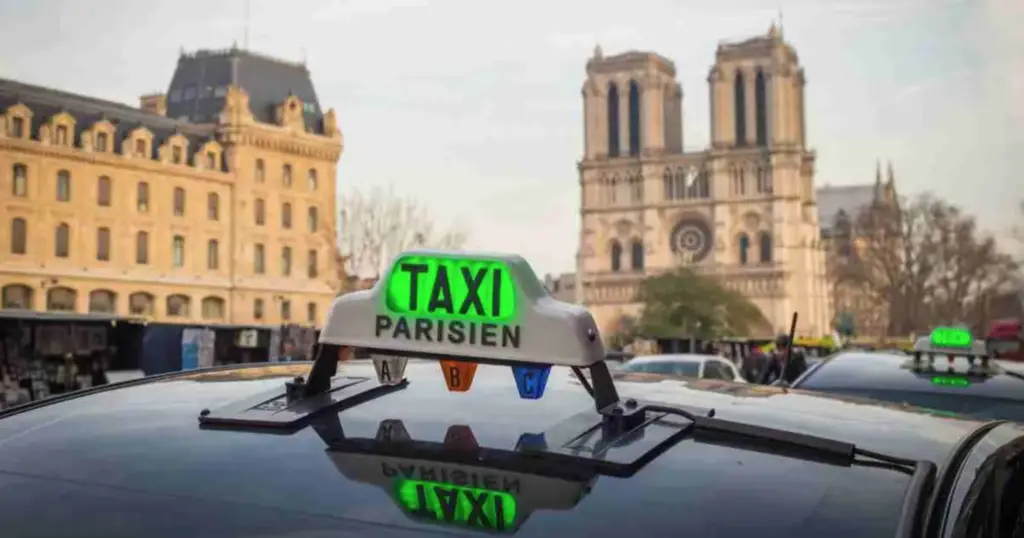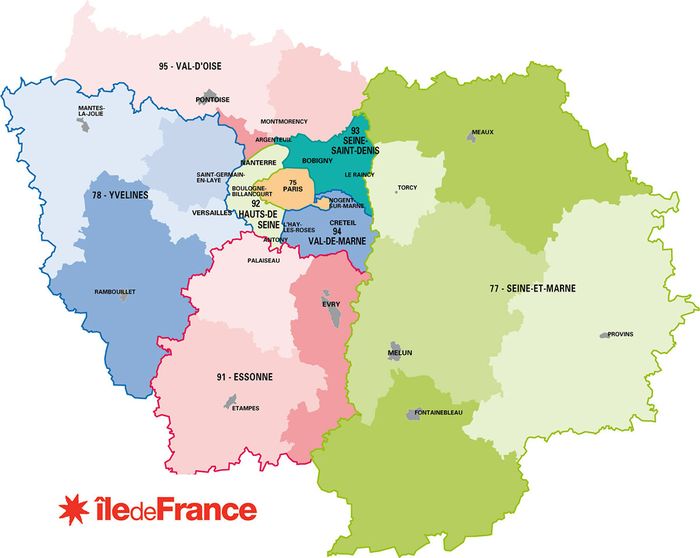TO BOOK YOUR RIDE SUCCESSFULLY, MAKE SURE TO :

A fleet of over 5,000 eco, VAN and premium vehicles.
To get more details, send an email at : “contact@allo-taxi-paris.net“.



• 4 Passengers (max)
• 2-3 luggage depending on size
• Cheapest price

• 4 Passengers (max)
• 5-8 luggage depending on size
• Onboard credit card terminal with invoice
• Waiting for up to an hour and a half
• Best drivers

• 7 Passengers (max)
•7-15 luggage depending on size
• Onboard credit card terminal with invoice
•Wi-fi onboard
• Waiting for up to an hour and a half
• Recent VAN
From 1898 to 1950, the taxi industry underwent many changes and was affected by the world wars. In 1898, the first taxi vehicles in Paris were electric fiacres. In 1905, the “Compagnie française des automobiles de places” was created, which would later become G7. In 1910, fare regulations were introduced and in 1911 there was the first taxi drivers’ strike. In 1913, the Compagnie française des automobiles de places was taken over by the bank Mirabaud & Cie and became G7. In 1914, 1,100 Paris taxis were requisitioned to transport troops during the First World War. In 1920, Citroën taxis became a serious competitor to the G7. In 1927, Renault bought the G7. In 1930, unemployment soared due to the Great Depression and many people started working as taxi drivers. In 1932, Renault taxis appeared on the market. During the Second World War, from 1939 to 1945, taxis were used to transport troops and equipment. By 1950, there were 20,000 taxis in Paris.
In 1951, the first taxi call points went into service. In 1956, the number of taxis reached 12,500 and the first radio switchboard was installed. In 1960, customers could ask the driver for a bill, known as a “bulletin de voiture”. In 1962, the Préfecture de Police began issuing licences to people repatriated from the Algerian war, and also took charge of examining drivers and carrying out technical checks on vehicles. Since that year, taxis have been able to use bus lanes. In 1964, the taxi’s sign was required to indicate the fares charged during the journey. In 1966, the authorities allowed taxi owners to transfer their licence to a successor, a move that gave rise to much controversy in the profession. In 1968, the “events of May 68” led to social demands and fares were revised for the first time in several years. Drivers were given the right to a break and double-duty was authorised for taxi companies. The flagship measure was the tax-free allowance on fuel granted to taxis. In 1974, the average price of a licence was 35,000 francs, or just over 5,000 euros, on the private resale market between drivers.
In 2001, taxis had to be equipped with a badge to access terminals 1 and 3 at Roissy airport and pick up customers, where the average waiting time was 2.5 hours. The first motorbike taxis, considered to be unfair competitors, appeared on the scene. In 2002, there was another shortage of taxi drivers. Some companies organised recruitment campaigns and went through the National Employment Agency to find candidates. In 2003, a taxi licence cost more than nine times its 1990 value, i.e. around 110,000 euros, and it cost 30,000 euros to become a shareholder. In 2005, the expansion of shuttles, which are based on the Loi d’orientation des transports intérieurs, began. For the first time, taxi hire companies had waiting lists of hirers. In 2007, tax-free fuel was abolished and the Vélib’ self-service bicycle system was introduced. In 2008, the Attali report proposed deregulation of the taxi profession and the abolition of licences. Taxi drivers organised several demonstrations in France and obtained an audience with Nicolas Sarkozy. The government has finally decided to bury Jacques Attali’s proposals. Taxis also obtained a fare increase of between 3% and 4% and a system for offsetting tax-free fuel. In 2009, the price of a taxi licence topped the €200,000 mark for the first time, i.e. 40 times its value in 1973.
The 2010 tourism modernisation decree led to the expansion of chauffeur-driven vehicles (VTCs) in France. In 2011, Uber launched its services in Paris, followed by other VTC companies such as Allocab, Les voitures jaunes, Le Cab, Snapcar and chauffeur-privé. This new profession was regulated by the State in April 2011. French taxis, who considered their business threatened by VTCs, mobilised several times in January 2013 and caused traffic disruptions in several major cities, including Paris, Marseille and Lyon. In October 2013, the government announced the introduction of several measures to calm conflicts between VTCs and taxis, such as the requirement for a 15-minute delay between booking and the customer being picked up by VTCs, but this measure was suspended in February 2014. To deal with the shortage of taxis at peak times, the government decided to agree to the creation of 1,000 additional plates in Paris and to require drivers to work during these hours. In 2018, the government passed a law to regulate the activity of VTCs and strengthen the regulation of taxis.
